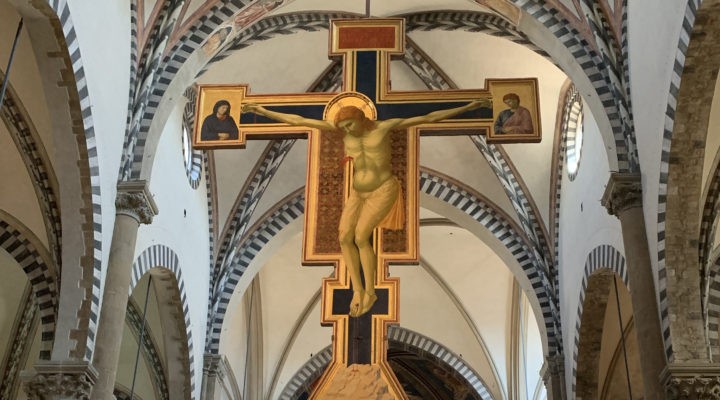Most of my adult life, I have questioned the notion of “Good Friday.” How can the day on which the Son of God was murdered be called “good”?
I never would call Sept. 30, the day my father died suddenly of a heart attack, “Good Wednesday.” I always wondered how on “Good Friday” we all would go have a service of mourning or go to church and see a “passion” narrative in which Jesus is hung on a Cross.

Steve Sullivan
I especially wondered about the three-hour Mel Gibson epic that came out in 2004 and how it was criticized heavily for its violent depiction. I always thought the movie played up the death of Christ way more than the life and resurrection, but it also probably portrayed the crucifixion pretty accurately — accurately enough to earn an “R” rating. How could all this be considered part of a “Good” Friday?
The question becomes: “’Good’ for whom?” And I guess that’s where the name comes from and why it stays with us; because it is “good” or holy for us, or supposedly it is. This depends on the self-centered, predominant “orthodox” position that Christ died in our place, and so it is Good Friday for us.
But this hinges on the substitutionary atonement theory where Jesus died in our place so we wouldn’t have to. Except that Jesus also said, “Take up your cross and follow me.” I won’t get into all the problems with the substitutionary view of the atonement (child abuse, God had to have a pound of flesh), but I do believe we need to rethink how we look at Good Friday and Jesus’ death on the Cross.
“Friday is a bad day where we, not God, killed Jesus.”
I’m not saying we have to change the name “Good Friday” to the prosaic “Day Jesus Died” like the Washington Redskins have become the “Washington NFL Football Team.“ But we need to realize that the good day is Sunday, not Friday. Friday is a bad day where we, not God, killed Jesus. And Friday is a day where Christ suffered on a cruel Cross.
Not to put a downer on “Good Friday,” but just a reminder that we might want to stop thinking about how awesome it is that we don’t have to die for our sins and remind ourselves how painful it was for Jesus to be executed publicly and to admit that some of that Mel Gibson blood is on our hands.
Steve Sullivan has served as a hospital and VA chaplain for 15 years. He helped create the VA/Clergy Partnership for Rural Veterans in 2009. This partnership brings together community clergy, mental health providers and others to help veterans gain access to both VA and community care. He worked to establish six ongoing VA/clergy “community action boards in rural sites throughout Arkansas. He grew up in Arkansas and studied at Baylor University, Midwestern Baptist Theological Seminary and Princeton Seminary. He is an adjunct faculty member at Memphis Theological Seminary.
Related articles:
How to have a ‘good’ Good Friday | Opinion by Alan Rudnick
Embracing Good Friday’s pain even when Easter’s hope seems galaxies away | Opinion by Christy Edwards
This Good Friday, I’ll be at the hanging tree | Opinion by Stephen Shoemaker


